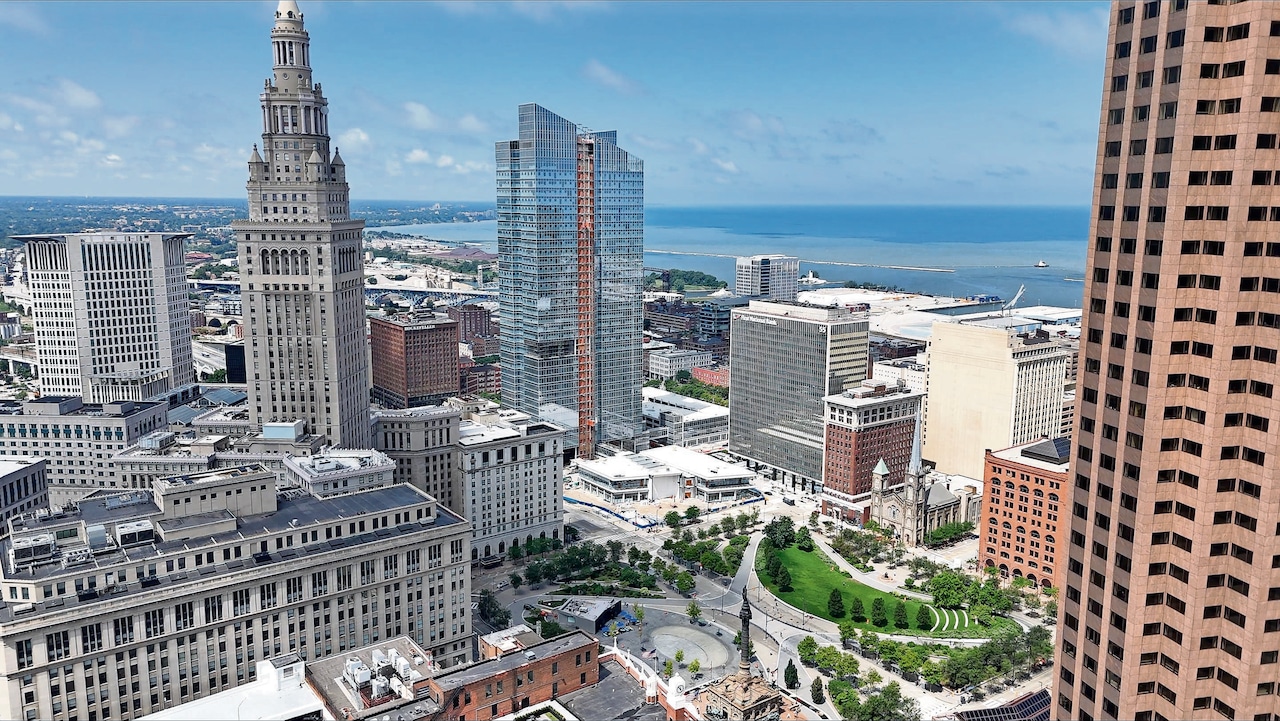Copyright cleveland.com

Clevelanders had a lot to say when asked why young families aren’t flocking to a city where home prices are $200,000 lower than the national median. Each day, I send a text message to more than 3,500 subscribers through our Subtext platform, (You can sign up for free at joinsubtext.com/chrisquinn.) and this week, I asked something that’s baffled many of us: Why don’t young families flock to Greater Cleveland... If you were in your 20s or 30s and didn’t need to live near relatives, would you start a family here—or move to one of those booming, high-cost cities like Nashville, Austin, Charlotte or Orlando? More than 330 people replied. Their thoughts fall into four broad themes: jobs and opportunity, politics and state image, weather and image, and culture and leadership. Many offered praise for Northeast Ohio’s affordability and quality of life—but lamented that the region’s potential remains buried under bad politics, poor marketing, and lack of career energy. Their answers tell a story of affection mixed with frustration—of people who love the region’s affordability and authenticity, but fear it’s stuck in the past. Four themes stood out. “It’s the jobs, stupid.” No sentiment was more universal. People go where opportunity lives. “Everywhere each of us has lived, it’s because that’s where the jobs were,” one reader said. “Our sons and grandchildren started their first jobs in Dallas and Raleigh because that’s where the jobs were.” Dozens said Cleveland’s corporate backbone has crumbled. “The Fortune 500 companies that were headquartered here in the 1980s are gone,” another wrote. “Cleveland used to be home to the third most Fortune 500 companies.” Even loyalists acknowledged the problem. “Jobs and careers attract young individuals. Greater Cleveland lacks the employment opportunities that growing cities have.” Others pointed to wages. “Ohio is in the top five states for unemployment,” one reader said. “Nashville’s rate is 3.1%. Cleveland’s is 6%. You can feel it—the energy’s missing.” Several said they stayed for family but warned their kids not to. “I’ll be encouraging my three children to go elsewhere,” one wrote. “There’s just not enough here for them.” “The politics are driving people away.” Almost as many focused on Ohio’s image as a red-state outlier. “Our state is so gerrymandered against young people it’s hard to raise a family here,” said one reader. Another was even more blunt: “The politics in Ohio would keep me away. Anti-gay, anti-abortion, anti-education, anti-equal-voting rights— not a good environment to raise kids.” One parent wrote that her daughter refuses to return because of “the regressive and racist ideas of the state legislature.” Another said, “No thoughtful woman would choose to move here and have a family.” A lifelong Clevelander reflected: “Under the current political environment, Ohio has become rural-driven and lacks progressive foresight. I’d look to a blue state, or at least a purple one.” For others, the perception itself is toxic. “Why would anyone move to ruby red Trumphio?” one asked. Another lamented: “It’s not Cleveland they’re fleeing—it’s Columbus. Our legislature keeps making it harder to attract educated, high-skill people despite our low costs.” “Gray skies and a dull reputation.” Weather, and what it symbolizes, loomed large. “It’s all about the weather,” wrote one man who’s lived here 73 years. “If my wife would agree, the for-sale sign would be up today. We’d be going to Phoenix where they have 320 days of sunshine.” Others said the gloom feeds the city’s bad image. “Terrible reputation of being boring,” one wrote. “Kinda true, kinda not true.” Another said, “It’s not just the skies that are cloudy over us. Cleveland needs to project a more refreshing and enticing view of itself.” Several faulted local marketing. “Cleveland doesn’t do a good enough job promoting its awesome spring, summer and fall weather,” one said. “All my friends in other cities only think of the dreaded winters.” Still, some saw potential advantages. “Climate change could motivate people to migrate back to Great Lakes cities,” a reader wrote. “We have water, moderate weather, and no hurricanes or wildfires.” And one summed it up: “We let our reputation go to the dogs. Instead of embracing winter, we started wintering in Florida in droves.” “We don’t sell our strengths—or ourselves.” Even Cleveland’s biggest boosters expressed dismay at the region’s leadership and self-promotion. “We lack big vision,” one said. “With luck I’ll see a real airport and lakefront development in my lifetime.” Another added: “Lack of regionalism holds us back. Too many local governments protect their own interests.” Several said the region lacks the “vibe” that young professionals seek. “The reality for gaining and maintaining 20–40 year olds is the buzz a metro area creates,” one reader wrote. “Charlotte and Charleston have mastered this. It’s a treadmill you never step off if you want to win this age group.” A transplant from Washington, D.C., agreed: “Even though we get more house for what we pay here, I still miss the amenities D.C. had to offer. Sadly we can’t say the same for Cleveland.” Others called it a perception problem. “Cleveland still suffers from an untrue ‘not cool’ label,” said one. “People who visit Cleveland love it.” Another said, “We’re a well-kept secret and need better marketing.” But some were harsher. “Cleveland has too much baggage to escape its downward spiral,” one wrote. “Poor leadership drawn from a poor talent pool.” A complicated love story For all the gripes, plenty of readers still sang Cleveland’s praises. “It is now, as it was when the quote was first developed—Cleveland, the best location in the nation,” one wrote. Another said simply, “I moved here from Los Angeles because it was unaffordable there. I love it here.” A transplant from Philadelphia marveled: “Our house in Ohio City is twice the size of our old one in South Philly and about the same price. I tell anyone who will listen they’d be surprised.” A longtime resident said his son’s girlfriend moved here reluctantly. “She agreed to try Cleveland for one year max. Then she fell in love with the place, and they just bought a house.” The consensus? Cleveland offers a quality of life few cities can match—but that’s not enough. Until it delivers opportunity, optimism, and a clear sense of forward motion, it will keep losing the very people who could build its future. As one reader put it: “Cleveland is a wonderful place to raise your family—but I would never trade my time in Chicago during my 20s for Cleveland.” That tension—the lure of energy elsewhere versus the satisfaction of home—is the challenge Cleveland has yet to solve.



